The content of the article
An organism is a multifaceted system in which all mechanisms work clearly and harmoniously. The gastrointestinal tract is intended for grinding and processing food, removing its residues naturally. Rumbling and gas formation are completely natural physiological processes that occur in every body. A rumbling in the stomach most often indicates a banal hunger. Characteristic sounds occur against the background of the interaction of fluid and gases in the intestine. Sometimes the rumbling becomes so strong that people around him notice it. Today we’ll talk about what rumbling in the stomach is, why it occurs and how to get rid of it quickly and safely.
Why belly rumbles
In fact, rumbling is the movement of gases, which is accompanied by a strong contraction of the intestinal muscle layer. If rumbling is rare and always associated with hunger - this is the absolute norm. If the stomach rumbles often, regardless of the meal, this may indicate more serious violations.
- Too much food. Sometimes the movement of gases and intestinal activity is not associated with hunger, but, on the contrary, with overeating. Especially if you went too far with spicy, fatty, pickled and smoked foods.
- Nerves. The intestines and stomach are very sensitive to our psycho-emotional state, which is why diarrhea occurs after stress, and the ulcer worsens. Nervous experiences, conflicts, aggression and irritation can lead to a malfunction in the intestines, it will begin to growl very strongly.
- Air. Rumbling is the movement of air through the intestines, so the main reason for internal sounds is air entering the stomach. The ingestion of air occurs when drinking carbonated drinks, drinking liquids from a straw, and smoking. Air can enter the body if the prosthesis is not tight enough to the gums during meals. Children often swallow air while sucking a breast or bottle. Excess air in the intestines may appear due to fermentation processes when we eat legumes, cabbage, radishes. If we eat on the run, dry, do not chew food thoroughly, then a lot of air also enters the stomach.
- Pose. It has long been noticed that the stomach most often rumbles if you are lying on your back. In this position, the intestines are more spacious, the movement of gases is faster.
- Dysbacteriosis Often the cause of rumbling and flatulence is dysbiosis. The balance of beneficial bacteria in the intestine is disturbed due to changes in diet, eating unbalanced foods, taking antibiotics, and stress. This is accompanied by constipation or diarrhea, discomfort in the abdomen, often there are colic.
- Poisoning. Pathological microflora in the intestine can occur against the background of food poisoning. Stale, poisoned, spoiled and sour foods should not be included in the diet.
- Allergy. In some cases, food intolerance to products is manifested in exactly this way - rumbling, bloating, colic. As an example, lactose intolerance can be singled out when enzymes for the absorption of milk are not produced in the body.
- Gastrointestinal diseases. Rumbling, pain in the stomach and intestines, flatulence, heartburn, nausea can indicate diseases of the stomach and intestines. Strong rumbling often indicates gastritis.
Along with the indicated causes, rumbling can occur with serious pathologies - bowel obstruction, swelling, etc. But in this case, more serious symptoms will arise that will certainly force the patient to seek qualified medical help.
How to get rid of rumbling in the stomach
Rumbling is the result of bad eating habits, the result of an unhealthy lifestyle. Here are some things you can do to relieve a stomach storm.
- Beneficial bacteria. First you need to try to identify the cause of the endless rumbling. If you suffer from constipation or diarrhea, suffer from flatulence, most likely you have dysbiosis. You can get rid of it with the help of Probiotics. The pharmacy has a wide selection of drugs with beneficial bacteria - Linex, Hilak Forte, Lactobacterin, Bifiform, Acipol, etc.
- Enzymes. These drugs are needed for overeating and poisoning, when the pancreas temporarily ceases to produce the enzymes necessary for the absorption of foods. Mezim, Pancreatin, Festal - one of these drugs must certainly be in the home medicine cabinet.
- Medicines for flatulence. These are symptomatic drugs that quickly collapse gas bubbles in the intestines and bring them out. One of the most effective and popular is Espumisan.
- Antispasmodics. If rumbling is accompanied by colic or acute pain, you will need antispasmodics - No-shpa, Spazmol, Bioshpa.
- Sorbents. This group of drugs perfectly absorbs toxins, waste products, alcohol breakdown products, pathogenic bacteria in case of poisoning. Among them, one can single out a simple activated carbon, Polysorb, Filtrum, Smecta.
- Decoctions of herbs. You can cope with flatulence and rumbling in the stomach with the help of decoctions of poisons with a carminative effect. Drink a decoction of dill (seeds and herbs), cumin, mint, wormwood, chamomile, anise, coriander. You will notice a significant improvement within half an hour after a glass of drunk medicine. If you have a tendency to rumbling and bloating, you should drink such decoctions in courses - half a glass in the morning and evening, about two weeks.
These are the basic emergency measures that will help you quickly get rid of unpleasant sounds in the stomach. But what if rumbling arises again and again?
Diet rules for abdominal rumbling
If your stomach rumbles and rages all the time, then you are making the same mistake over and over again related to behavior and nutrition. Here are the basic rules to help you calm and stabilize your intestines.
Rumbling and flatulence often occurs against the background of what we eat. It is necessary to abandon foods that cause fermentation in the intestines. These are cabbage, beans, grapes, fresh apples, fresh milk, green beans, radish, radish, pear, carbonated drinks, alcohol, kvass, fatty, smoked, salty, fast carbohydrates, sweets and cakes. All this should not be in your diet, especially in the early days of the diet, when the intestines are just getting better.
You need to eat simple and light meals. These are porridge from rice and buckwheat on the water, lean vegetable soups, lean meat, fish, poultry, baked vegetables and fruits, homemade crackers, biscuits.
Sour-milk products are worth a closer look. Some people suffer from increased gas production after consuming kefir. Others, on the contrary, restore healthy intestinal microflora with the help of fermented baked milk.
Refuse chewing gum - it stimulates the additional production of gastric juice, this is fraught with increased intestinal motility.
To overeating was not the cause of rumbling, you need to eat in small portions, but often. In addition to the main three meals, there should be at least two snacks so that you do not starve and do not pounce on food.
Eating should be calm, measured, leisurely. The uncontrolled throwing of food into the stomach will result in even rumbling. By the way, the intestines often rumble when trying to grind pieces of food into smaller pieces. To avoid this, you need to chew food very carefully, at least 30 movements with the jaw!
Stop smoking.Firstly, in the process you swallow a large amount of air, and secondly, nicotine weakens muscle tissue, including intestinal tissue.
After eating, you can’t lie, but you also should not engage in active physical activity. It is best to walk after eating - this will facilitate the process of digestion and assimilation of foods.
Be sure to play sports, move more, walk. Give up the elevator and go up several floors on foot, go for a walk with the dog, and go to the forest or mountains on weekends. An active lifestyle has a very positive effect on the condition and functioning of the intestines.
If rumbling in the abdomen is observed in the baby during the first three months of life - do not rush to sound the alarm. This is absolutely normal for a child, because his digestive tract is in its infancy. This period you just need to go through and endure. You can help your baby with massage, gymnastics, swimming, laying on his stomach, using a warm diaper. You can choose baby medications to relieve colic. Be sure to monitor the baby's stool and regular discharge of gases.
Rumbling in the abdomen and flatulence in 80% of cases are the result of a slight change in diet and lifestyle changes. But in every fifth case, rumbling speaks of more serious problems that must be consulted with a doctor. If rumbling is accompanied by diarrhea, fetid stench, impaired appetite, nausea or vomiting, if there is undigested food in the stool, you should definitely visit a gastroenterologist. With a high temperature, weakness and apathy, a visit to the doctor should be immediate, you may need the help of an infectious disease specialist. Watch your health, take care of your body!
Video: why the stomach rumbles

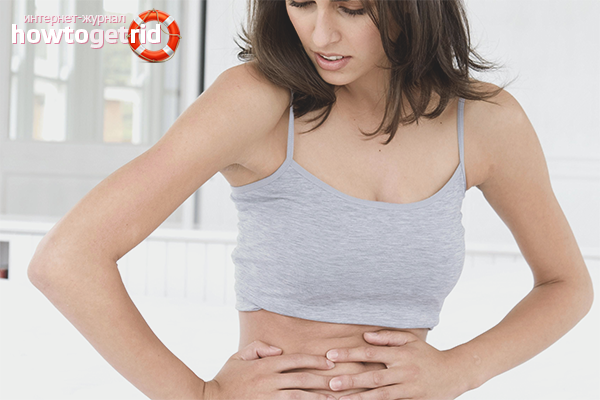

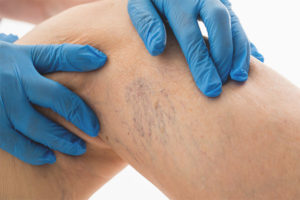
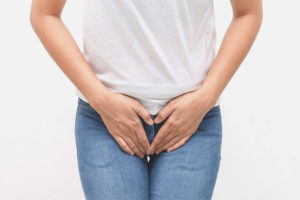
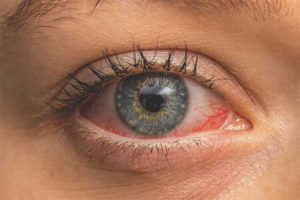


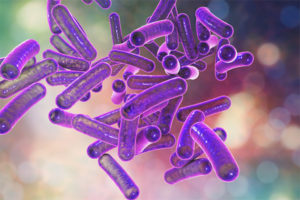
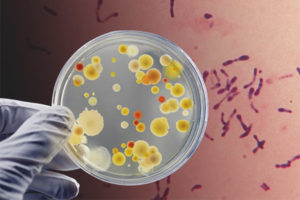

Submit